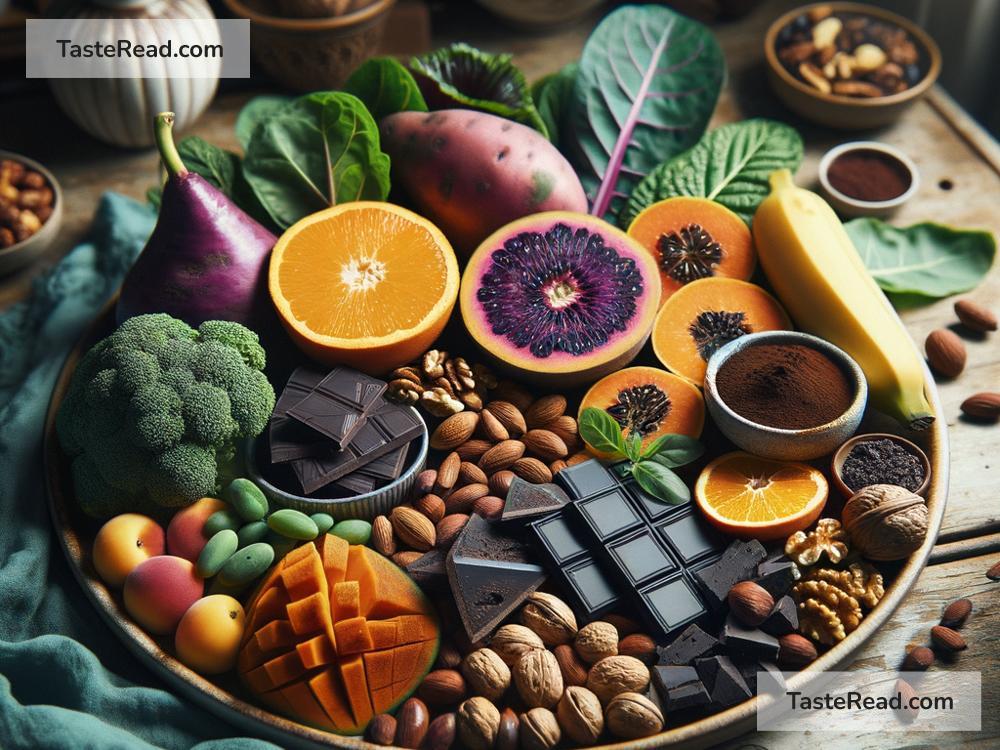Foods That Promote Melanin Production
Your skin, hair, and eyes owe their unique colors to a pigment called melanin. Melanin serves more than just giving color—it’s your body’s natural shield against harmful UV rays. Whether you’re looking to enhance your glow, support your natural skin hue, or protect yourself from sun damage, boosting your melanin levels through your diet can help. In this blog, we’ll explore simple, everyday foods that promote melanin production.
What Is Melanin?
Melanin is a pigment produced by cells called melanocytes in your skin, hair, and eyes. It has two main functions: determining color and protecting your body from UV radiation. The amount of melanin in your body largely depends on genetics, but diet and lifestyle can influence its production to some extent. Certain foods contain nutrients that support melanin synthesis, and adding these to your meals can be a natural way to enhance your protection and coloration.
Nutrients That Stimulate Melanin Production
Before diving into specific foods, it’s important to understand the nutrients that encourage melanin production:
1. Vitamin A: Helps in the maintenance of skin cells that produce melanin.
2. Beta-carotene: A precursor to Vitamin A, found in colorful fruits and vegetables.
3. Copper: Plays a crucial role in activating enzymes that produce melanin.
4. Vitamin C: Boosts overall skin health and indirectly supports melanin synthesis.
5. Vitamin E: Protects skin cells and enhances melanin production.
6. Antioxidants: Provide cell protection and stimulate melanocyte activity.
Foods That Promote Melanin Production
1. Carrots
Carrots are rich in beta-carotene, which your body converts into Vitamin A. This nutrient plays a vital role in melanin production by supporting melanocyte activity. Snack on raw carrots, toss them into salads, or blend them into smoothies for an easy melanin boost.
2. Sweet Potatoes
Just like carrots, sweet potatoes are a powerhouse of beta-carotene. Their natural sweetness makes them a versatile ingredient for both sweet and savory dishes. Bake them, mash them, or roast them—your skin will thank you!
3. Tomatoes
Tomatoes contain lycopene, another pigment that supports skin health and melanin production. They also provide Vitamin C, which is known for protecting skin cells and promoting overall skin health. Add tomatoes to sauces, salads, or simply enjoy them fresh.
4. Citrus Fruits
Oranges, lemons, grapefruits, and other citrus fruits are loaded with Vitamin C. This nutrient helps strengthen your skin’s collagen and promotes melanin activation. Squeeze fresh lemon juice over dishes or enjoy citrus fruits as snacks for added glow.
5. Leafy Greens
Spinach, kale, and other leafy greens are rich in Vitamin A and antioxidants. Including leafy greens in your diet supports your melanocytes and helps protect your skin from UV damage. Blend them into smoothies or make a hearty salad to reap their benefits.
6. Eggs
Eggs are a fantastic source of Vitamin E and healthy fats that promote melanin production. The yolk contains essential nutrients that maintain the health of your skin and hair. Scramble, boil, or poach—getting your daily dose of eggs is an easy option.
7. Nuts and Seeds
Almonds, walnuts, sunflower seeds, and other nuts are rich in Vitamin E, copper, and antioxidants. These nutrients work together to stimulate melanin synthesis and protect your skin cells. Snack on them raw or sprinkle them on your meals.
8. Dark Chocolate
Dark chocolate contains copper, an essential mineral for melanin production. Choose chocolate with a high percentage of cocoa (70% or more) to enjoy its melanin-boosting benefits. Plus, it’s a delicious treat!
9. Avocados
Avocados are packed with healthy fats, Vitamin E, and antioxidants that help your skin cells function well. Adding avocados to your diet can indirectly support melanin production while giving your skin a hydrating boost.
10. Fish
Certain types of fish, such as salmon, mackerel, and tuna, contain omega-3 fatty acids and Vitamin E. These nutrients protect your skin and help melanocytes function properly. Grill or bake fish for a healthy meal that supports melanin.
11. Pumpkin
Pumpkins, like carrots and sweet potatoes, are loaded with beta-carotene. Enjoy pumpkin soups, pies, or even roasted seeds to incorporate this nutrient-rich food into your diet.
Keeping It Balanced
While certain foods can boost melanin, it’s important to eat a balanced diet to support overall health. Don’t rely solely on melanin-promoting foods—make sure you’re also eating proteins, carbs, and healthy fats in recommended proportions. Staying hydrated is equally important since well-hydrated skin produces melanin more effectively.
Lifestyle and Sun Protection
Boosting melanin through food is just one piece of the puzzle; lifestyle choices also play a role. For instance:
– Moderate sun exposure helps your body naturally produce melanin, but always wear sunscreen to protect your skin.
– Avoid smoking and reduce stress, both of which can interfere with melanin production.
Conclusion
From carrots to avocados, many everyday foods contain powerful nutrients that can support natural melanin production. By incorporating these foods into your diet, you can enhance skin health, protect against UV damage, and enjoy a vibrant, natural glow. Remember, melanin isn’t just about color—it’s your body’s way of keeping your skin safe and healthy. So eat smart, stay hydrated, and enjoy radiant results!


